By C. R. S. Lyles
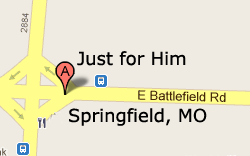 On June 11th, 2011, despite protestations from local business-owners and smokers alike, Springfield, Missouri passed Council Bill 2010-180, which bans any and all smoking activity indoors within the city limits.
On June 11th, 2011, despite protestations from local business-owners and smokers alike, Springfield, Missouri passed Council Bill 2010-180, which bans any and all smoking activity indoors within the city limits.
“The City Council has determined that the adoption of this ordinance furthers the public health and welfare of the community by prohibiting smoking in public places and places of employment, and by guaranteeing the right of non-smokers to breathe smoke-free air, and further determining that the need to breathe smoke-free air shall have priority over the desire to smoke.”
The above passage is taken directly from Council Bill 2010-180, which was filed over a year before the injunction took place and was sponsored by Council members Dan Chiles, John Rush, Cindy Rushefsky, and Mayor Jim O’Neal.
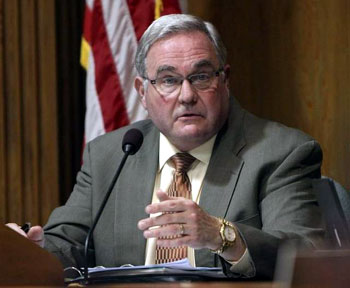
“To my knowledge, it seems like everyone would rather go ahead and sit down at their neighborhood bar and have a drink than go outside and smoke,” said Mayor O’Neal. “Before I was even elected, I would hear grumbling from people from both in and out of town who would complain about the level of smoking, and from the feedback I’ve received, it seems that, for now, the majority of people are pretty happy with the ordinance.”
However, despite Mayor O’Neal’s optimistic outlook, not all council members (and certainly not all of the citizens of Springfield) were for the passage of this bill.
“Whether it’s smoking or the kind of light bulbs we have in our homes, this smoking ban is another perfect example of our continuing loss of freedoms in this country. It all comes down to whether you support public health over public freedom,” said councilman Nick Ibarra of the Springfield City Council.
Through stories coming out of Springfield and its city newspaper, the News-Leader, the ordinance seems to have been met with understanding, compliance, and little if any opposition, but the truth, as always, is far more complex.
“There were a lot of businesses who said ‘We agree with you, but we’re against this ban. We don’t want to alienate our non-smoking customers, so we’re not going to speak out about it.’ If more businesses had voiced their opposition, this could have turned out much differently,” said Ibarra.
Council Bill 2010-180 passed by only a 53-47 margin as opposed to a more usual 70% – 30% or 60% – 40% split.
And this margin becomes even more impressive when one looks at the campaign funds that were spent by both sides of this argument.
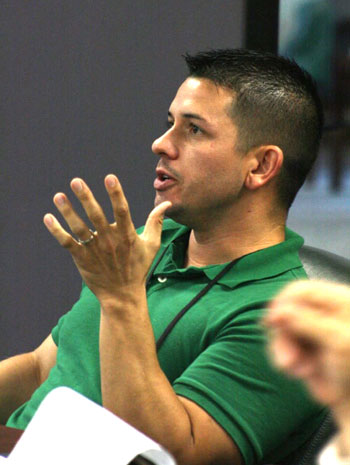
According to Ibarra, the proponents of this initiative spent approximately $90,000 in their attempt to have this bill passed, while the opposition, a group who calls themselves Live Free Springfield, spent only about $16,000.
Of the $90,000 that was donated in support of the ordinance, only between $100 and $500 was raised locally, whereas all of the money raised for the opposition came from local support.
The remainder of the money raised in support of Council Bill 2010-180 came from donations from the American Cancer Society.
Local business owner Jessica Hutson, along with husband Christian, were a part of the Live Free Springfield movement, and have been vocal ever since the ordinance passed on how it has affected their tobacco shop, Just For Him.
“Our business is reliant upon people being able to smoke in here,” said Hutson. “We specialize in custom tobacco products and premium cigars — a lot of our merchandise is stuff that people haven’t had before. We want to be able to talk to them about what they’re trying out, have them light it up in the store and discuss what they like and don’t like about it. Thanks to this ordinance, we can no longer do that.”
And thanks to further stipulations of the recent ordinance, it seems even the air outside the store has been claimed by the anti-smoking proponents.
“We have a large outdoor patio at our shop where our customers can sit outside and relax while they smoke. Three days after the ordinance went into effect, we had two visits from the health department to our outdoor patio and even though we were found to be in compliance with the ordinance, we now can’t even smoke outside because our landlord took away our smoking patio.,” said Hutson. “So, really, we’re not even allowed to have smokers indoors or outdoors at the shop.”
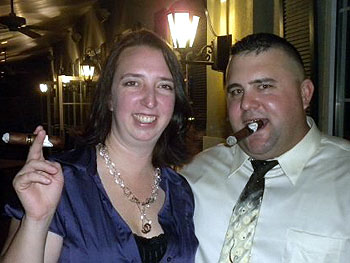
Though obviously as nonsensical, annoying, and frustrating as it is for local customers to not even be allowed the freedom to enjoy a smoke in a facility specifically built so that they can enjoy a smoke (and thanks to the three industrial-strength filters that were installed in Just For Him, those more sensitive to the smell of burning tobacco need not worry about the dangerous carcinogens getting outside the walls of the store), it is not only the local customers who suffer from this ordinance, but the national and international customers as well.
Just For Him has a national online fan base for their custom tobacco blends, and ships to almost every country around the world each week. In addition, representatives from Just For Him are present at most pipe shows around the country.
But, because of this ordinance, business has had to adjust to fit both the demanding and restrictive parameters of Council Bill 2010-180.
“We can’t custom blend now because we can’t test it in the shop with this new ordinance in effect. In order to test, we have to have a trial and error process that we just can’t have now,” said Hutson. “We can’t even test faulty product and make sure that our merchandise is good. Recently, we had to send back a large shipment of tobacco because a customer called us and told us that something was wrong with it, and we weren’t able to catch it before it went out because of the ban.”
In a time period which is being referred to as the “Great Recession”, subjecting even one businesses to stipulations which hinder its practice and restricts them from something as simple as testing merchandise for flaws is both socially irresponsible and remarkably cold for a country whose entire reputation and economy is built upon the ideals of entrepreneurship.
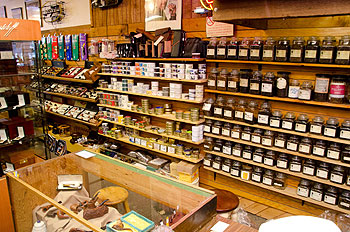
Proponents of the bill, however, argue that allowing exemptions to the ordinance will only lead to further disagreements between both sides.
“We tried to pass the ordinance a while back at the council level, and we were ready to make some concessions that were reasonable, but the intent from the opponents of the bill was just to shoot it down altogether,” said Mayor O’Neal. “If you make too many exemptions, then soon everyone wants them.”
Ironically, council members at that time voted 9-0 in favor of an exemption to the ban for tobacco shops, but members since then, such as council members John Rush and Cindy Rushefsky, have changed their minds about amending the ordinance.
“The moment that happens, we’re going to hear from everybody else,” said Rush about the possibility of concessions.
Rushefsky even wants to see further restrictions added to the ordinance, such as a stipulation that tobacco stores must be free-standing (not connected to other businesses) for even the possibility of an amendment to the ordinance to be considered.
The trouble with this whole situation, though officials such as Rush and Rushefsky would undoubtedly disagree, is that this ordinance is just another example of the misplaced activism which retains just as much of the momentum and public support as it did in the ’60s but whose direction has managed to shift into the realms of the ludicrous.
The ability for this ban to be opened up for an amendment at some future date is a moot point; an amendment wouldn’t even be needed for this bill had its sponsors just taken a moment to consider the social and financial ramifications that this ordinance would create.
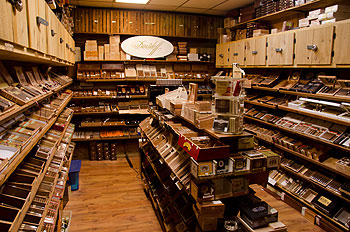
It’s like voting to make a city part of a dry county, but allowing the bars to stay open, or enacting mandatory dietary restrictions, but keeping McDonald’s within the city limits.
Sadly and yet again, it’s just another case of the same old story on a different day.
Six months after a bill has been passed, it is opened back up for discussion and the possibility of amendments can be brought before the City Council.
“On October 12th, we plan to hold a meeting where we can open it back up for debate. We plan to offer the possibility of an amendment to the tobacco and smoke shops,” said Mayor O’Neal.
As undoubtedly many of the Springfield smoke shops are, Just For Him is ready to be present at that meeting.
“We don’t intend to go anywhere,” said Hutson. “We continue to be here despite this ordinance because we have the most customers. Our in-town customers will still come in to sit down and have lunch here even though they can’t smoke inside, and our out-of-town and international customers were calling for weeks after [the ordinance passed] to ask how the vote had gone.”
Though it has been months now since Council Bill 2010-180 passed, the debate still rages behind the scenes and preparations for the October 12th meeting are already being made.
“This is our business, and this is our knowledge,” said Hutson. “Part of what we’re selling is our knowledge. People come in with questions, and if we can’t help them, then we lose what we are as a store.”
It is more than appropriate to note, then, that the Just For Him tobacco shop resides on a road called Battlefield.
Just For Him
1334 East Battlefield Road
Springfield, MO 65804
Ph: 417-886-8380
Website: JustForHim.com
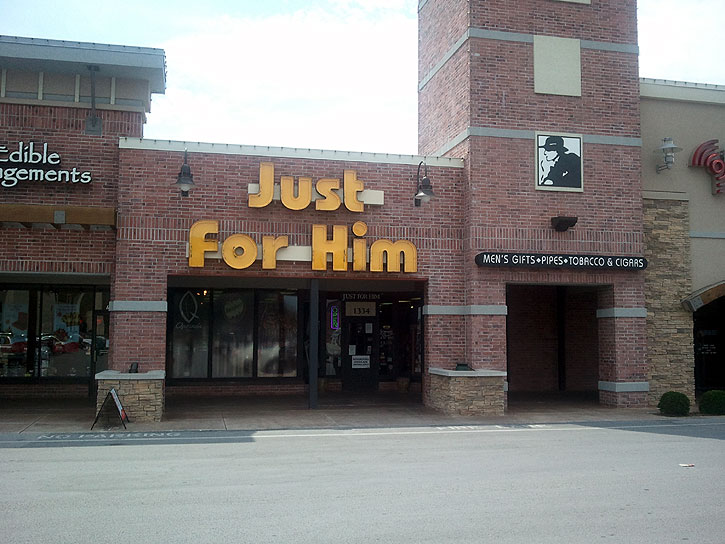
[mappress]

Carter R. Lyles is a student at the University of Central Florida in Orlando, FL and at the University of Florida in Gainesville. He is a journalism/psychology major, and in addition to his work at Pipes Magazine, he has contributed articles to The Alligator, Thursday Night Magazine, and The Fine Print. |







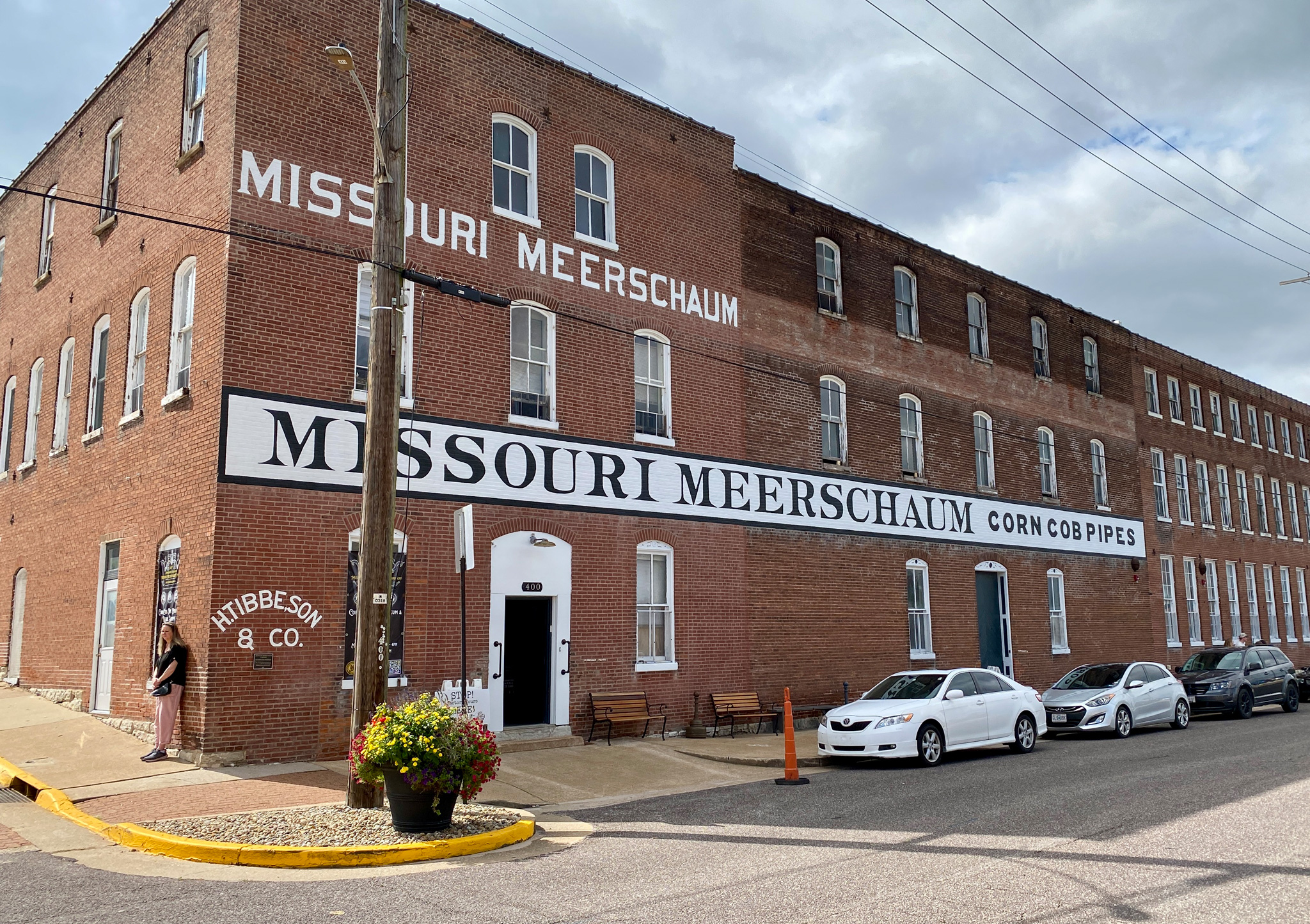

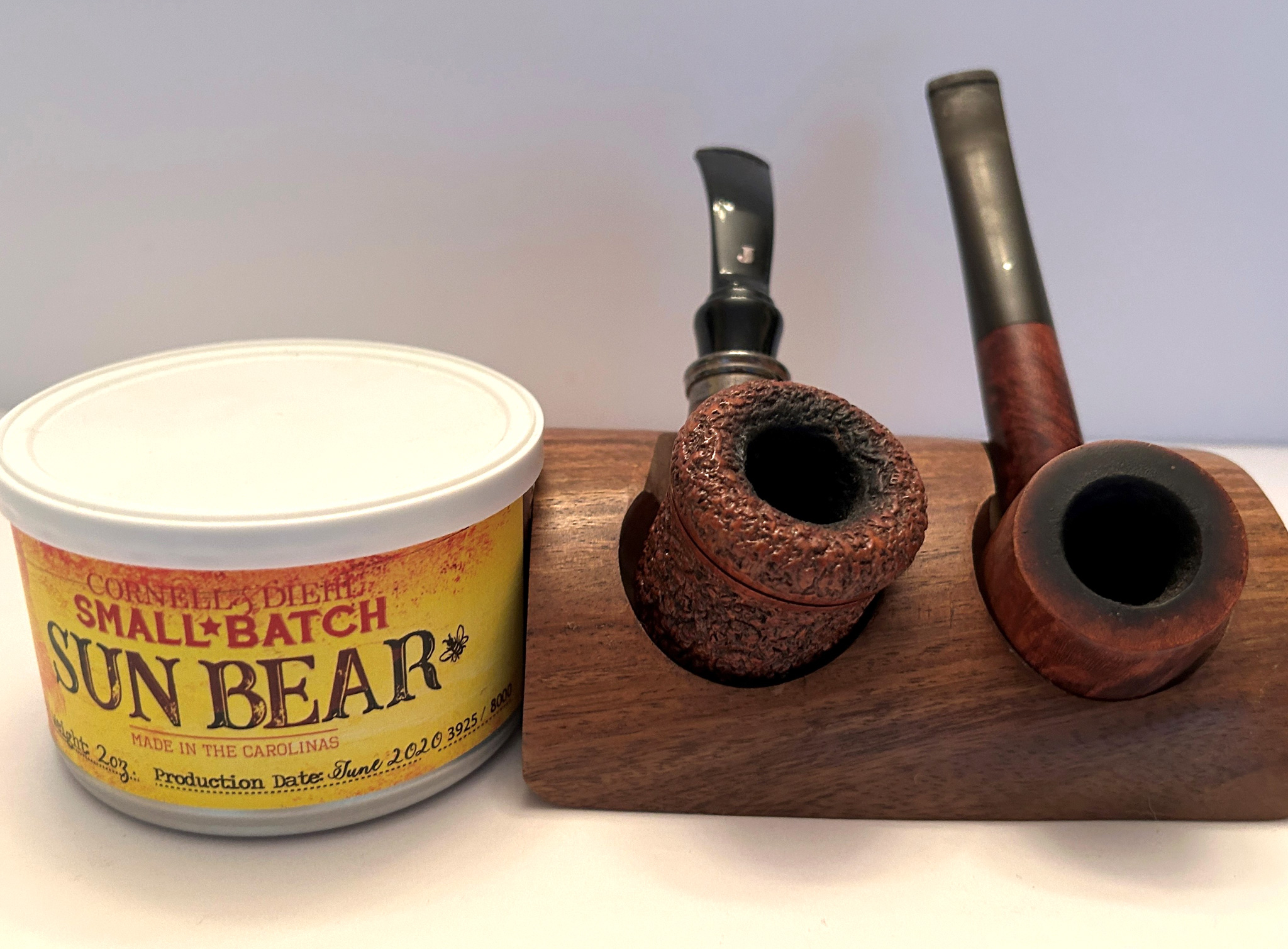
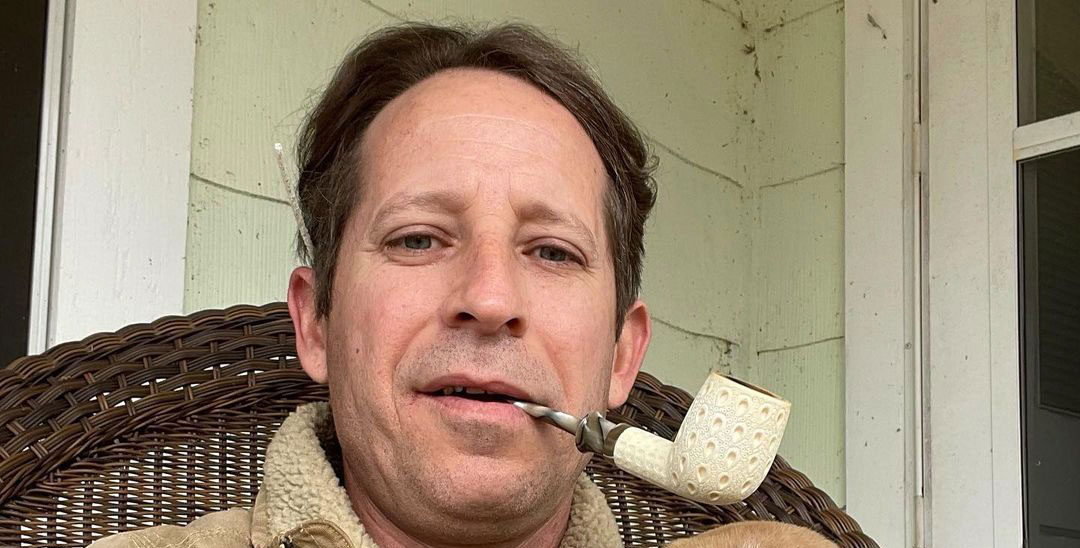






“Follow the money.” Hal Holbrook was right.
I think it’s fair to say that logic and reason are dead in Springfield Missouri.
If I could vote there, because the Mayor has an obvious lack of backbone (owing to the fact it has migrated into his head), the Mayor will lose my vote.
In a March, 2011 article PipesMagazine.com reported that, in Illinois, lawmakers are backpedaling on a similar indoor smoking ban because gambling casino revenues are down. So I guess Romeowood (above) is right. That reality notwithstanding, the article,
https://pipesmagazine.com/blog/pipe-news/illinois-lawmakers-mull-smoking-in-casinos-bars/
goes on to note:
“There is a falsely placed prejudice regarding secondhand smoke that never should have been allowed to fester in the first place. Even OSHA has established safe levels of secondhand smoke and those levels are literally thousands of times higher than normally found in bars and restaurants that allow smoking.”
.
It is particularly distressing that outside propaganda money was used to overcome local opposition of the ordinance. Based on donations for and against, the ordinance appears to be unpopular at the local level, but has been crammed down the locals’ throats.
.
I’ll never again vote for a Democrat candidate — not even a relative running for dogcatcher!
Looks like we’ll have to wait another 30 years for all these old moron mayers and law-makes keel over so we can over turn every stupid bill they’ve ever written down.
You know, I can understand banning smoking in restaurants, I really can. I’m a smoker and even I don’t like being around smoke when I’m eating. This however is beyond the pale. These bans have to have some common sense grandfather clauses for establishments like this whose income comes solely or in a great part from tobacco sales. This is just ridiculous.
I must agree with what Choch said. Lawrence was one of the first cities in my area to ban smoking at all bars and restaurants, and even as a smoker, I supported those initiatives. It made eating at restaurants more pleasant. I didn’t feel like I had to shower after a plate of barbecue riblets from Applebee’s (for anything other than the normal meat-sweat reasons.)
However, there are clearly exceptions that need to be made. A store that primarily sells tobacco should very clearly have an exception.
While I understand some look at banning smoking anywhere as a loss of freedoms, it is undeniable that smoking can have negative health consequences. If someone eating an awesome blossom doesn’t want to smell my pipe smoke, it would be rude of me to tell them “Too bad, personal freedom.” Before smoking was banned, occasionally that was the response. (I have anecdotal evidence to back this up, if you care.)
However, if I’m puffing from a bowl of McClelland from my local Brick and Mortar tobacco retailer, and they wish to complain, they can kindly bugger off.
This article is an outstanding summation of the difficulties faced not only by the tobacco industries and businesses like Just For Him, but small business as a whole. Over-regulation, pandering to stridently vocal special interests, reliance on malleable (potentially corrupt?) politicians to look out for constituents’ interests, the list goes on and on. I’m glad non-smokers have their rights. however, smokers, as a minority, should also have their rights respected. Most smokers do not go out of their way to cause others “smoking distress.” i would say that a majority of pipe smokers are looked upon favorably, since we try to be unobtrusive, and what we smoke generally smells better than cigarettes. Still, we’re hunted down, even in our sanctuaries like Just For Him. What’s next, smoking bans for our backyards, in our own homes?
I like Just For Him blends; I’ve never had a bad one. If the only thing I can do to support their cause is to increase my ordering from them, then that’s what I’ll do. At least here in Texas, we can still smoke in a tobacconist’s. Let Missouri be free, too!
Sorry for hogging the bandwidth on this topic, but I just couldn’t contain myself.
.
Exemptions to the smoking restriction ordinance seem entirely reasonable for a tobacconist since only tobaccophiles would be there anyway. Yet the article states that Mayor O’Neal and Councilmen Rush and Rushefsky are reluctant to make such concessions because, “If you make too many exemptions, then soon everyone wants them”, and “’The moment that happens, we’re going to hear from everybody else’, said Rush about the possibility of concessions.”
.
Well, duh! If you propose a law to which everyone seeks an exemption, what does that tell you about the need for such a law and the will of the people?
.
Morons!
“Of the $90,000 that was donated in support of the ordinance, only between $100 and $500 was raised locally, whereas ALL of the money raised for the opposition came from local support. The remainder of the money raised in support of Council Bill 2010-180 came from donations from the American Cancer Society.”
What does this say? Do people really want local control, or give it away to some faceless money-grubbing outside organization? Amazing the people don’t see that.
Yet it was a similar story in San Angelo Texas last year when the voters approved nearly 3 to 1 a blanket smoking ban sponsored by the cancer society and their local lickspittles. The city council tossed a few crumbs to the opposition (allowing the local quality tobacco shop to REMAIN OPEN instead of closing it because it’s not “free-standing” and removing the phase-out of ALL smoking rooms in motels) but the main thrust, eliminating smoking from all other businesses and within 20 feet of entrances remains intact.
I support Springfield’s tobacco merchants in begging for a few crumbs in order to remain open, but the smoking ban should be struck down in totality. Let the marketplace (the merchants and their patrons) decide where to go and what to do.
Smoke may be annoying to some people, but it’s NOT going to hurt them. If smoking were as dangerous as the cancer society says it is, all the smokers would have died out years ago!
What’s wrong with the Springfield politicians that they allow outsiders (Cancer Society) to purchase their votes and they ignore the wishes and desires of the people that elected them (If you make…exemptions then everybody will want them.-Mayor O’Neal.) When politicians fail to do the bidding of their constituents they should be replaced. Let them learn first hand about the unemployment that they have caused. This also applies to politicians on the national level.
@ cortezattic: Congratulations on your comment about never voting for a Dumbocrat,(did I spell that right? Yeah, I guess I did.) I’m so bloody tired of the pleasure police treating us as 2 year olds and telling us what we can and can’t do I could SCREAM! People don’t realize that the objective of these fanatics is to erode our freedoms one at a time so we won’t notice. Stick to your guns. I don’t care if Jesus, Mohammed, Buddha, Zarathustra, Lao Tzu or Confucius were running on the dumbocratic ticket, ( If there’s anyone I’ve failed to offend, I appologize. Feel frewe to let me know, and I’ll be sure to include you next time!), they wouldn’t get my vote!